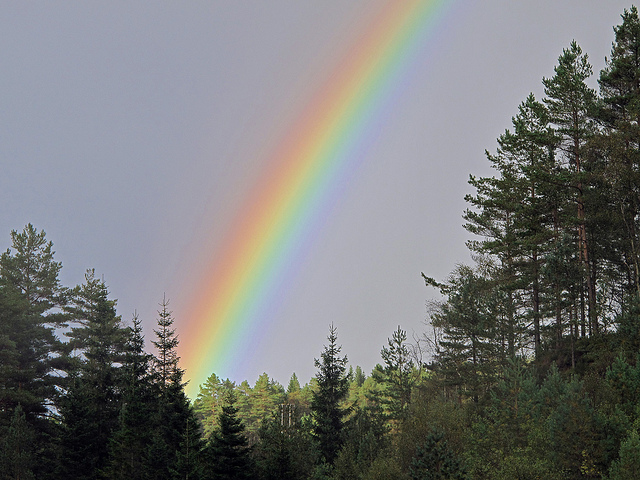
The Mercy of Stillness
Our world tends to forget about mercy. We assume there is a choice to me made between justice and mercy. It is clear which side we have chosen.
We are convinced it is crucially important to be strong and powerful. Mercy, we believe, is naive, weak, foolish, and shortsighted. While we do not see ourselves as jaded or cynical, we appreciate strong justice more than mercy. We believe punishment is part of justice.
Mercy is a last resort. When all else has failed and there is no other hope, we beg for mercy.
Our world respects justice and power but is skeptical of mercy. We believe, in our rightness, we can appeal to justice and do not need mercy.
Mercy is so forgotten in our world we do not remember what the word even means. Mercy is not about feeling sorry for someone who is weaker than we are. It is not a way to show how kind or enlightened we are.
We do not practice mercy because everyone deserves a second chance. Mercy is not a form of pity.
We understand the world around us as a place which demands justice and strength. Our view of the world seeps into the ways we understand and experience spiritual life.
Some of us practice listening to sacred stillness almost as if it were a military drill. We want to force our thoughts into line with our intention to find stillness.
Sacred stillness is not something we deserve. We do not earn sacred stillness through our practice of listening. Our practice is how we seek the mercy of stillness.
We sit and listen, allowing the mercy of stillness to fill us and spread into the world through us. It is mercy, not something we have earned.
Receiving the Mercy of Stillness
When we take time to listen to sacred stillness we are embraced in its mercy. We practice listening, turning our intention into reality, and we begin to receive sacred stillness.
The sacred stillness of spiritual life is not something we deserve or we can earn. We receive stillness in all its mercy.
Some of us spend long hours over many days practicing our listening. The mercy of stillness, though, is not a reward or a bonus for listening well or long.
We put ourselves at the mercy of spiritual life, listening to sacred stillness, and we receive the mercy of stillness.
Receiving the mercy of stillness fills us with acceptance and joy and gratitude. Our word “mercy” comes from the same root as the French word “merci” or “thank you.” The mercies we show others grow from our gratitude for the mercies we receive.
Some of us may be intimidated by spending time listening to sacred stillness. We may not experience the mercy of stillness.
As we begin and continue to practice listening to sacred stillness we come to recognize the mercy. We take time, without pressuring ourselves, to quiet our minds and breathe deeply. The noisy, distracting aspects of life can be set aside for a short time and we live in the mercy of stillness.
There is nothing we need to do in order to receive the mercy of stillness, no rules we need to follow. We cannot earn or qualify for mercy. Mercy comes to us as we listen and breathe, rest and release our grip.
We practice listening to sacred stillness for a few minutes each day. As we become stronger listeners the mercy of stillness sparks our gratitude.
Sharing the Mercy of Stillness
We receive the mercy of stillness and, in our gratitude, we share our mercy with others.
The time I invest in my practice of listening to sacred stillness does not automatically make me grateful. I do not necessarily receive the mercy of stillness however I listen.
As we listen to sacred stillness our hearts and minds are shaped and guided. It is not as if we are sitting outside when it rains, with a shower of mercy giving us a good soaking.
Sacred stillness is within us as well as in the world and people all around us.
We do not share the mercy of stillness because we decide we will act a certain way at certain times. Our mercy is not part of an attempt on our part to convince ourselves we are people of particular mercy.
Listening to sacred stillness helps us pay attention to our inner stillness long enough to help it live in us. We are not struggling to be more merciful or more grateful. It is not as if we feel guilty or responsible about not being good enough.
It is a mercy we do not need to force ourselves to act in certain ways. We take time to listen and sacred stillness grows within us. Sharing the mercy of stillness is not about being required to do something, but being allowed to do it.
Our practice of listening to sacred stillness sparks the light of spiritual life within us. The light and life within us is shared with other people through the gratitude and mercy which grow in us.
Remembering the Mercy of Stillness
Spiritual life is not magic. The mercy of stillness grows in us as we open ourselves to listen to sacred stillness.
We do not spend every moment practicing contemplation. Our practice shapes us and reminds us about the mercy of stillness we receive. We remember our experiences and share our stories with the people around us.
The sacred stillness to which we listen is full of mercy for us. There are no expectations of us in the stillness, no requirements or demands. We open ourselves to listen to sacred stillness and its mercy draws us in and fills us.
The mercy of stillness is for us. We receive it and share it with those around us as it shapes us.
Where will we receive the mercy of stillness today?
How will we share the mercy of stillness this week?
[Image by randihausken]
Greg Richardson is a spiritual life mentor and leadership coach in Southern California. He is a recovering attorney and university professor, and a lay Oblate with New Camaldoli Hermitage near Big Sur, California. Greg’s website is StrategicMonk.com, and his email address is [email protected].












